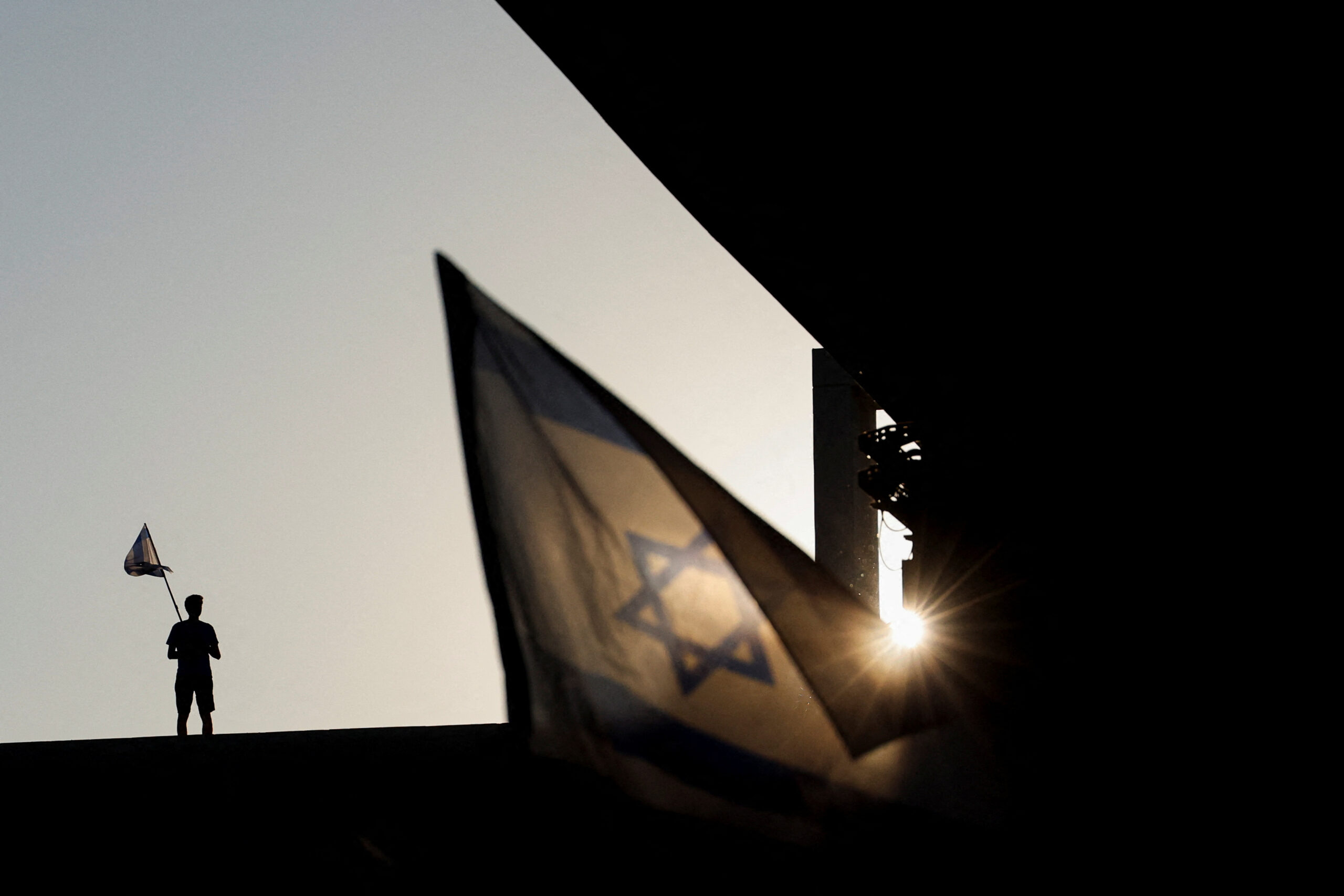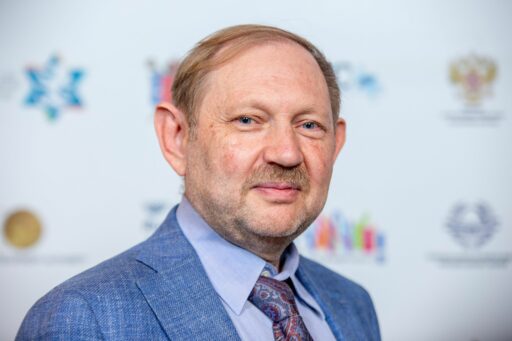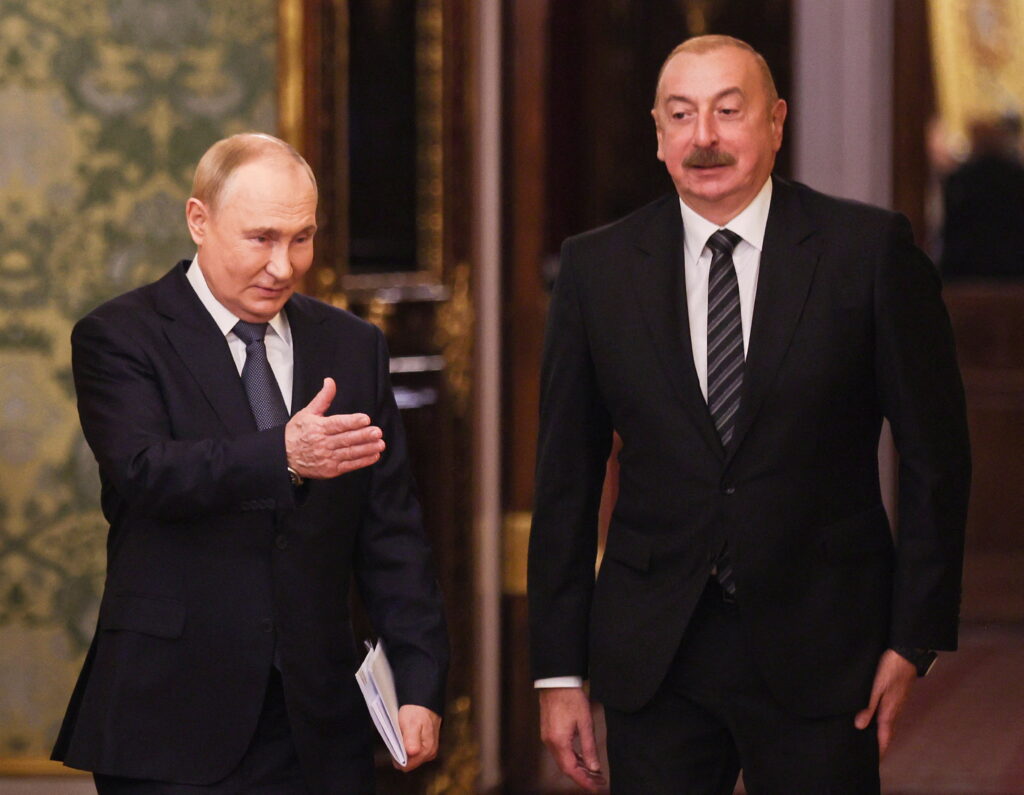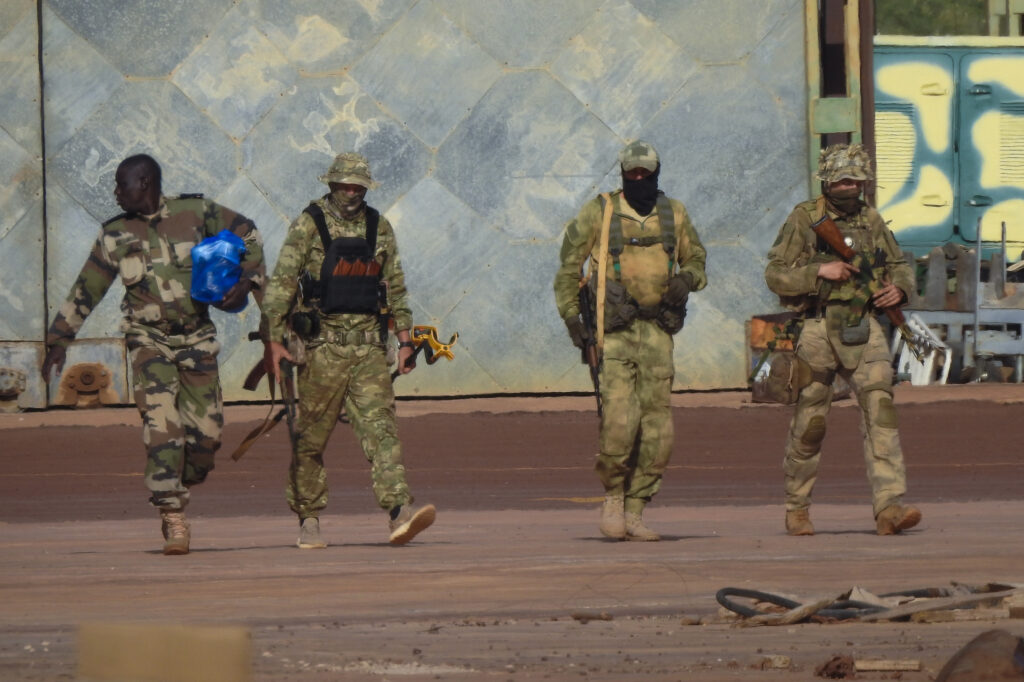Russia’s full-scale invasion of Ukraine triggered large-scale emigration from both countries. Part of this process was a new and so far largest wave of emigration of the Jewish populations of Ukraine and Russia since the 1990s. While Jewish emigration from Ukraine consisted mainly of refugees fleeing war in the fullest sense of the word, Jewish (as well as other) emigration from Russia was primarily motivated by negative economic prospects in that country, as well as emigrants’ disagreement with the regime’s policies and fears of the country’s increasing isolation from the civilized world.
In the first weeks after the outbreak of full-scale war, Israel became the preferred destination for both Ukrainian and Russian Jews. However, these two largest post-Soviet Jewish emigrant communities soon went their separate ways. While in March 2022 twice as many new repatriates arrived in Israel from Ukraine as from Russia (6,009 and 3,393 respectively), by April 2022 this vector had shifted to European countries (with Germany being the most popular destination), where the authorities and local Jewish communities launched large-scale programs to receive Ukrainian refugees. Jewish emigrants from Russia living in these countries, which are particularly cautious in their attitudes toward Russian nationals regardless of their ethnicity and political beliefs, could not expect a similar welcome in Europe, and this situation is unlikely to change in the near future.
Today, Israel, which, with relatively few exceptions, admits Diaspora Jews immediately upon arrival and grants them citizenship, remains the only country in the Western world that grants immediate permanent residency to Russians who meet the criteria of the Israeli Law of Return. As a result, Jewish repatriation from Russia to Israel is on the rise: between February 2022 and June 2023 it amounted to more than 47 thousand people, three times the size of the aliyah from Ukraine (about 15.5 thousand people). This is almost 2/3 of the total number of new citizens that Israel received from all over the world during this period.
Aliyah and the Israeli society
The repatriation of Diaspora Jews (the Hebrew term for it is kibbutz galuyot, literally, the «gathering/returning of the exiles») to their historical homeland in Eretz Yisrael (Hebr: «Land of Israel»)/Palestine and the (re)establishment of a Jewish nation-state there is the key element of political Zionism. This repatriation (the Hebrew term «aliyah» literally means «ascent») and the integration of the repatriates into the local society is a critical element of nation building and a key factor in Israel’s political, economic, social and cultural development.
Over the past 3 decades, the concept of «aliyah» has been clearly associated with the «great aliyah» of Soviet and post-Soviet Jews, whose total number from 1989 to the present has reached about 1.25 million, or 75% of the total number of immigrants to Israel from all over the world during the same period. It is hardly surprising that issues related to this group of immigrants remain prominent on the national agenda: together with their children and grandchildren already born in Israel, these people make up about 17% of the Jewish population and about 13% of Israel’s total population.
For all the traditional disagreements between the old-timers and the newcomers, there used to be a general consensus in the country that the «Russian-speaking» aliyah played a crucial role in Israel’s «economic miracle» of the late 1990s and early 2000s. It was also widely believed to have strengthened the demographic balance of Israeli society, boosted the country’s defense capabilities and contributed to the development of Israeli culture. One would assume that a similar lens should be applied to the analysis of the so-called «war aliyah» that began on 24 February 2022 and became a de facto continuation of the so-called «Putin aliyah» of 2014−2021, which brought about 130 thousand people to Israel (more than half of them — from Russia, about 35% – from Ukraine).
Indeed, there was no shortage of positive reactions to the arrival of this group of new citizens in the Israeli social landscape. At the same time, however, the public space was flooded with negative assessments and comments, mostly from conservative and rightwing radical circles. Their main criticism of the members of the new wave of repatriation from Russia and other countries of the former Soviet Union included, first, the widespread assertion that the majority of these people do not intend to settle permanently in Israel and thus will not contribute to the development of the Jewish state. These people, it is assumed, are only interested in taking advantage of the package of government benefits (including health insurance and social services) to which new citizens are entitled, and in obtaining an Israeli passport, which allows visa-free or facilitated entry into most of the developed countries of the world.
The second motive is the belief that the arrival of these new immigrants poses a substantial challenge to the Jewish character of the State of Israel, because a high proportion of the new immigrants in the «war aliyah» and «Putin aliyah» are not halachically Jewish (Jewish according to Jewish religious law Halacha): they were neither born to Jewish mothers nor converted to Judaism according to the state-recognized procedure.
The validity of both claims — regarding both the «war aliyah» and Russian-speaking Israelis in general — is problematic. The total percentage of FSU natives who left the country during the entire 33 years of mass repatriation of this group is about 14%, which is lower than the percentage of natives of any other country except Ethiopia and, at certain times, France. To be fair, among the members of Putin’s aliyah and the «war aliyah» the proportion of those who returned to the country of origin or moved to third countries was significantly higher, but it did not exceed the proportion of such persons among recent repatriates from virtually all Western countries.
The second claim is a bit more complicated. The percentage of «non-halachic Jews» among Russian-speaking applicants for citizenship in the State of Israel gradually increased from 12−20% in the early 1990s to about 55−60% among those who arrived in Israel in the 2010s. In total, the number of people registered as «non-Jews» who arrived during the first 30 years of the «great aliyah» from the former USSR (1989−2019) amounted to just over 300,000 people — slightly more than 30% of all immigrants during this period. Moreover, Israel’s Ministry of the Interior registered them as non-Jews or persons «without any ethno-religious affiliation,» while the Central Bureau of Statistics (CBS) continued to count them in the category of «Jews and others,» thereby including them in the country’s «extended Jewish population.»
This is a natural situation, reflecting the extensive process of assimilation of Diaspora Jews, as a result of which virtually every Jewish community in the world today includes, in varying proportions, both an ethnic «core» (persons of homogeneous Jewish origin, usually with a stable Jewish identity) and a «cloud» (descendants of mixed marriages and non-Jewish members of Jewish households) of the Jewish population. If past experience is any guide, wars, political upheavals, sharp increases in social tensions, outbreaks of anti-Semitism, and other social (as well as man-made and natural) disasters are triggers for mass migration, the Jewish segment of which most often represents a representative cross-section of the «extended Jewish population» of a given country. This was true of the first, relatively largest segment of the «great aliyah» from the former USSR in the first half of the 1990s, and it is true today of the «war aliyah» from Russia and Ukraine.
In other words, aliyah to Israel reflects the state of the Jewish diaspora. However, this has proven to be a weak argument for those who focus exclusively on religious and legal definitions of Jewishness and ignore other modern approaches to defining and identifying Jewishness, including ethnicity, culture, origin, family and group heritage, and so on. Importantly, the identity of Russian-speaking Jewish communities is primarily ethnic, not religious, and this is true for people of both homogeneous Jewish and mixed ancestry. We should add that moving to Israel and acculturating into the culture of its Jewish majority tends to activate a powerful post-assimilation mechanism. Regardless of their halakhic status, most Jewish children and grandchildren acquire or strengthen their Jewish identity within five to seven years, and their Israeli civic identity within two to three years of repatriation. Significantly, according to a study conducted in the spring of 2022, two-thirds of the respondents who arrived in the country on «war aliyah» considered the Jewish state to be «their country» «to a great extent» or simply «to a significant extent» within a few months of their arrival.
Ethno-political context
Nevertheless, alarmist discussions about the «unprecedentedly high» proportion of those who are not considered halachically Jewish in the aliyah from Russia and Ukraine that have arrived in Israel over the past 9−10 years have continued unabated. And with these discussions have come demands to amend the Law of Return so as to exclude a number of categories of descendants of mixed marriages and their families from the right of return. However, while such demands had previously circulated mainly as abstract ideas, by 2020−2021 the first, and so far unsuccessful, attempts had been made to formalize them in the form of legislative initiatives. With the formation of a new governing bloc after the November 2022 Knesset elections, in which the ultra-Orthodox religious parties (the «haredim») and the most conservative factions of the religious Zionists (the so-called «Hardal») set the tone in civil affairs by adopting their agenda in this area, such initiatives moved from the realm of abstract debate to the realm of practice.
The explanation for this departure from the historically established understanding of aliyah as an absolute good for Israel, regardless of the motivations of the new citizens, is largely political. For many decades, the main political divide in Israeli politics has been the Arab-Israeli conflict, which has divided society into «right-wing» and «left-wing» parties that favor one or the other of the «peace for peace» and «peace for territory» models for resolving relations with the Arab countries. The other axes of political division played a lesser role.
The situation has begun to change significantly in recent years, as the Arab-Israeli issue has receded to the periphery of the national agenda. Civil issues have now come to the fore, first and foremost the question of the adequacy and relevance to today’s realities of the entire set of norms, rules and understandings that operate within the system of agreed and generally accepted norms of relations between the state and religion that was established at the dawn of Israeli statehood. More broadly, at the heart of the dispute is the meaning — ethno-national or religious — that the proponents of the various approaches attach to the idea of the Jewish democratic character of the State of Israel.
This issue has surfaced in the form of a public debate about the political status of religious communities and the just and fair distribution of «civic and economic burdens». It was symbolized in many ways by the community of people from the former Soviet Union, whose members adhere to the right-wing agenda, but at the same time almost completely support the idea of Israel’s Jewish identity in its ethno-national sense. This was also the position of the Yisrael Beiteinu [“Israel Our Home”] party, the majority of whose voters, like its leader Avigdor Lieberman, came from the former Soviet Union.
One of Yisrael Beiteinu’s demands was to change the practice of automatically exempting ultra-religious youth from the IDF draft as long as they officially devote all their time to the study of religious texts, without the right to work, which used to deprive the national economy of many tens of thousands of sought-after workers every year. Such changes were strongly opposed by haredi [ultra-orthodox] politicians. Thus, destroying Yisrael Beiteinu’s traditional electoral base became a critical task for its opponents in the ruling Likud party and its strategic partners, two ultra-religious factions: the Sephardic SHAS party and the Ashkenazi Yahadut HaTorah bloc. The bloc’s propaganda campaign portrayed Yisrael Beiteinu’s Russian-speaking voters in their stereotypical grotesque image of «non-Jews and religion-haters,» which, according to credible sociological research, is far from reality. The campaign also claimed that the party’s leaders allegedly «encourage the immigration of such people to Israel». It was obvious that it was only a matter of time before such insinuations were directed at the entire community of people from the former Soviet Union, and that is exactly what happened very soon.
The effect of this line on the religious-right bloc has generally been negative: the number of Russian-speaking voters in its member parties has steadily declined. In the last Knesset elections in November 2022, Likud and the religious parties allied with it received no more than one-third of the «Russian» vote, the remaining two-thirds were received mainly by the right-wing and centrist parties (Yisrael Beiteinu, State Camp, and Yesh Atid), which remained in opposition. That is, politically speaking, Israel’s «Russian street» as a whole remained in the right-wing political camp, mostly preferring its moderate-right and right-liberal segment. And if the leaders of the Conservative bloc can do almost nothing with the «old core» of Israel’s Russian-speaking community at this stage, it may seem logical to them — however cynical it may sound — at least not to replenish its electoral potential.
This probably explains why a powerful propaganda campaign is currently underway with the explicit goal of gaining public legitimacy for changing the parameters of the Law of Return. Its starting point is to abolish the clause that allows for the autonomous repatriation of the grandchildren of halakhic Jews, without which many of their relatives of half-Jewish and full-Jewish origin will probably not dare to come either. To this end, members of the new Russian-speaking wave are portrayed as «disenfranchised Jewish interest groups» trying to capitalize on the opportunities Israel offers them, while the [press] harps on isolated incidents that fit the occasion, pretending that they are more numerous than they actually are.
At the same time, public opinion polls are periodically injected into the information space, seemingly confirming the eagerness of the majority of Israelis to accept the announced legislative changes. According to one such poll, commissioned by «Hotam», an organization close to the most conservative flank of the ultra-Orthodox national camp, and published on the website of the «mouthpiece» of this camp, the Arutz 7 radio station, «the majority of Israelis are concerned about the immigration of goyim (non-Jews) to Israel and, as a result, the reduction of the proportion of the Jewish population in the country.» Therefore, 59% of those polled thought it was right to change the Law of Return so that people who are not halakhically Jewish (i.e., not only third but also second generation mixed marriages) cannot return to Israel and receive Israeli citizenship. However, these data contradict the overwhelming majority of other studies on the same topic, which show that the idea of reserving the right of repatriation and citizenship of the Jewish state only for «halakhic Jews» is supported by about one-third of Jewish Israelis, and less than 10% are willing to abolish the right of repatriation only for «grandchildren of Jews». About one-third to 40% of Israelis believe that the Law of Return should not be changed, and 15−20% of respondents generally are convinced that the country should be open to anyone «who feels Jewish».
So do Israelis need an aliyah from Russia?
Today it is clear that the Russian Jewish community remains the only statistically significant resource for large-scale repatriation to Israel — although not everyone in Israel’s political leadership is enthusiastic about this prospect. Thus, the Minister of Aliyah and Integration in Israel, Ofir Sofer, from the joint list of right-wing parties «Religious Zionism/Otzma Yehudit» [Jewish Power], complained that «all the resources of the ministry were previously (allegedly) spent only on the integration of repatriates from the former Soviet Union.» He defined his mission as encouraging aliyah from Western countries, mainly from France and English-speaking communities (these immigrants most often vote for Likud and religious parties). However, there is little chance that these countries have the potential for repatriation to Israel in numbers even comparable to the emigration potential of the Russian Jewish community. So, despite the information noise surrounding the Law of Return, aliyah from there will obviously continue.
Much will also depend on the opinion of native Israelis and old-timers, including those repatriates from the USSR and post-Soviet countries who have been living in Israel for decades. In practical terms, are Israelis ready to demand that the government encourage repatriation from the former Soviet Union by allocating significant resources?
A survey commissioned by the Ministry of Aliyah and Integration in September 2023 showed that the main civil and political «lobby» for repatriation from the former Soviet Union consists of secular, politically moderate Israelis, mostly of Ashkenazi origin and of European and American descent, with above-average family incomes. (The exception is the former Soviet repatriates, who share the same outlook and tend to be on the right side of the political spectrum).
The core of the opposing camp of skeptics and «negativists» with regard to Russian-speaking and other aliyah is a conglomerate of largely overlapping categories: mostly right-wing Sephardim — both native Israelis and those who came from Asia and Africa — religious traditionalists, and families with below-average incomes. It is easy to assume that the divide between «positivists» and «negativists» in relation to Russian-speaking aliyah, like much else in Israel, complements the divisions that separate political-ideological, ethno-cultural, and class contradictions in Israeli society.
But neither should these divisions be made absolute. In the sample as a whole, almost half of the respondents are in favor of encouraging aliyah from Russia, Ukraine and other post-Soviet countries «to a great» or «very great» extent, and of investing in their integration in Israel. Nearly a quarter of the respondents are willing to do so «to a moderate extent.» Only a little more than 20% thought that only limited resources should be invested in such projects, or not at all.
Thus, if we are to believe the data from this and other similar studies, the bulk of the Jewish community in Israel remains committed to the Zionist idea of kibbutz galuyot, and this is unlikely to change in the foreseeable future.










